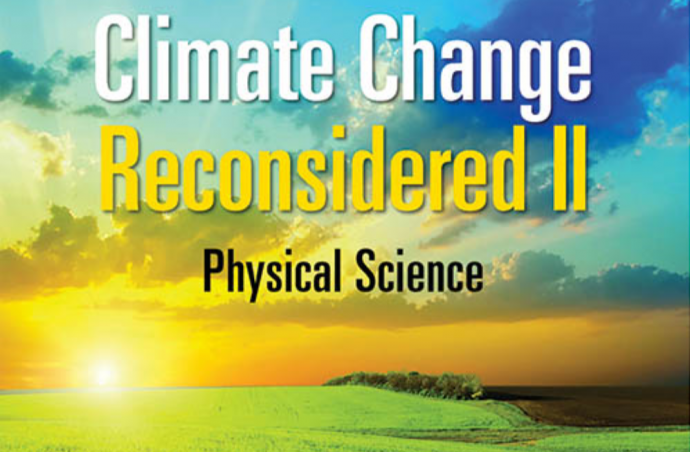There is no ‘consensus’ on the human impact on climate, and certainly no consensus on what should be done.
Last December the United Nations COP-21 “climate talks” made international headlines, and most Americans are familiar with the issue that used to be called global warming — but is now “climate change.” It is a safe bet, however, that few Americans are aware that there is actually a debate underway about the causes: it is not “settled science” as so many on the political left would have people believe.
 Because of Climate Change’s trumpeting by the dominant liberal-leaning media, many people have heard the claim that 97% of scientists believe in man-made global warming. Unfortunately, the truth about that hyperbole has not reached as big an audience: the study claiming a 97% consensus of scientists is not factually true.
Because of Climate Change’s trumpeting by the dominant liberal-leaning media, many people have heard the claim that 97% of scientists believe in man-made global warming. Unfortunately, the truth about that hyperbole has not reached as big an audience: the study claiming a 97% consensus of scientists is not factually true.
Writing at the Media Research Center’s website, Jeff Dunetz has reported that the study “was a qualitative study which relied on opinion and produced biased results.”
Another unfortunate fact is that few Americans are aware of the work of The Nongovernmental International Panel on Climate Change (NIPCC). What is the NIPCC? It is “an international panel of nongovernment scientists and scholars who have come together to understand the causes and consequences of climate change.”
Because we are not predisposed to believe climate change is caused by human greenhouse gas emissions, we are able to look at evidence the Intergovernmental Panel on Climate Change (IPCC) ignores. Because we do not work for any governments, we are not biased toward the assumption that greater government activity is necessary.
The NIPCC has held a number of international conferences and issued several science-based reports. According to the NIPCC website, some of the scientists contributing to the effort “have asked not to be named in NIPCC reports for fear of losing research grants and being blacklisted by professional journals.”
Here are some facts that more people should know.
Starting in 2009, NIPCC has been publishing a series titled “Climate Change Reconsidered.” Its thousands of pages summarize the science behind the controversy.
Together, they represent contributions from more than 50 climate scientists and cite more than 4,000 peer-reviewed articles. … [The] work is credible and respected in the climate science community. ‘Climate Change Reconsidered’ has been cited in about 100 articles in peer-reviewed science journals. The Chinese Academy of Sciences thought so highly of it that it translated and published a Chinese edition of the first two volumes in the series.
 In a recently published op ed, the Heartland Institute’s Joe Bast answered the oft-stated claim that “Climate change is real, and humans are responsible. This is not debatable if you believe in science. The science is clear. And that means there is only one question still worth asking: What on Earth are we going to do about it?”
In a recently published op ed, the Heartland Institute’s Joe Bast answered the oft-stated claim that “Climate change is real, and humans are responsible. This is not debatable if you believe in science. The science is clear. And that means there is only one question still worth asking: What on Earth are we going to do about it?”
Here was the start of Joe Bast’s response:
Climate change is real, but the only part of the science that is ‘clear’ is that the impact of humans on the climate is tiny compared with natural variability. If that’s the case, then the only question ‘still worth asking’ is: Why are we wasting billions of dollars and destroying millions of jobs without any hope of stopping or delaying global warming?
Bast has been studying the work of climate scientists for twenty years, and has helped edit the NIPCC series “Climate Change Reconsidered.”
“There is no ‘consensus’ on the human impact on climate,” Bast wrote, “and certainly no consensus on what should be done.”
The surveys and articles cited in support of that claim have been debunked many times. They invariably ask the wrong people (often non-scientists or only scientists likely to agree with the alarmist views) or the wrong questions (for example, if any warming has occurred rather than whether humans are responsible for the warming). Credible surveys of real climate scientists show extensive disagreement on basic scientific issues.
The human impact is very small. Many scientists who are expert on the ‘attribution’ issue say doubling the concentration of carbon dioxide (the main man-made greenhouse gas) in the atmosphere from its preindustrial level would likely cause a warming of less than 2 degrees Fahrenheit, half of which should already have occurred. If you think that’s a lot, get up and walk to another room. Chances are, you will experience 2 degrees of warming or cooling.
Even a warming of twice that much, should it occur, would fall within the bounds of natural variability. Temperatures were warmer during the Medieval Warm Period of 1,000 years ago, the Roman Warm Period of 2,000 years ago, and the Holocene Climatic Optimum of 5,000 years ago. Humans and ecological systems thrived during those warmer periods. There’s no reason to believe the results would be any less beneficial in coming centuries.
More Americans need to become aware of the work of NIPCC, and hear in greater detail, the facts put forward by those challenging the popular narrative regarding man-made global warming.
To learn more, visit www.co2science.org and www.heartland.org/Cop21.

